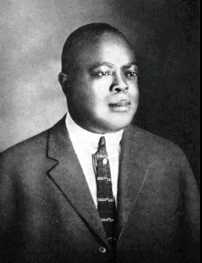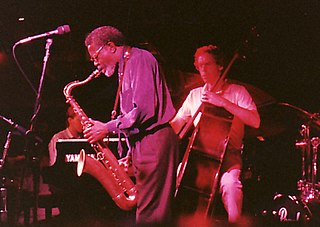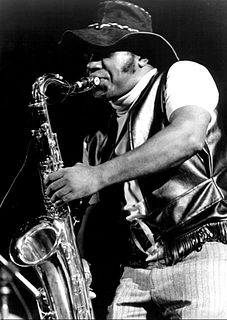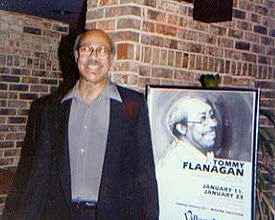Arville Shirley Harris (1904–1954) was an American jazz reedist. He was the brother of Leroy Harris, Sr..
Jazz is a music genre that originated in the African-American communities of New Orleans, United States, in the late 19th and early 20th centuries, and developed from roots in blues and ragtime. Jazz is seen by many as "America's classical music". Since the 1920s Jazz Age, jazz has become recognized as a major form of musical expression. It then emerged in the form of independent traditional and popular musical styles, all linked by the common bonds of African-American and European-American musical parentage with a performance orientation. Jazz is characterized by swing and blue notes, call and response vocals, polyrhythms and improvisation. Jazz has roots in West African cultural and musical expression, and in African-American music traditions including blues and ragtime, as well as European military band music. Intellectuals around the world have hailed jazz as "one of America's original art forms".
Harris was born in St. Louis and played on riverboats in the early 1920s. He worked in the bands of Hershal Brassfield and Bill Brown, then worked with Clarence Williams, including on recordings, late in the decade. Around the same time he recorded with Fats Waller, King Oliver, Eva Taylor, and Sara Martin. He played in Cab Calloway's group, including on tours of Europe, between 1931 and 1935. In the latter half of the 1930s he worked with Jacques Butler, Baron Lee, and Claude Hopkins. He led a band under his own name in New York at the Majestic Ballroom from ca. 1944 until his death.

Clarence Williams was an American jazz pianist, composer, promoter, vocalist, theatrical producer, and publisher.

Thomas Wright "Fats" Waller was an American jazz pianist, organist, composer, singer, and comedic entertainer. His innovations in the Harlem stride style laid the groundwork for modern jazz piano. His best-known compositions, "Ain't Misbehavin'" and "Honeysuckle Rose", were inducted into the Grammy Hall of Fame in 1984 and 1999.

Joseph Nathan "King" Oliver was an American jazz cornet player and bandleader. He was particularly recognized for his playing style and his pioneering use of mutes in jazz. Also a notable composer, he wrote many tunes still played today, including "Dippermouth Blues", "Sweet Like This", "Canal Street Blues", and "Doctor Jazz". He was the mentor and teacher of Louis Armstrong. His influence was such that Armstrong claimed, "if it had not been for Joe Oliver, Jazz would not be what it is today."















